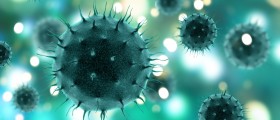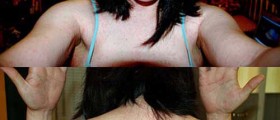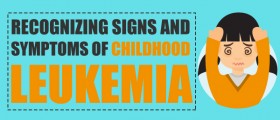
Mononucleosis, also known simply as “mono” is relatively common viral infection characterized by feelings of extreme tiredness and fatigue. Sufferers may feel tired and exhausted for weeks and months, and often need a lot of care and attention.
Who's at risk
This infection is caused by Epstein-Barr virus and usually affects adolescents and young adults. It can also affect children but in these little patients it doesn’t provoke any kind of severe symptoms and may often go unnoticed. Mononucleosis is extremely rare in older adults, since most of the population has immunity to the virus. Other names for this disease include EBV infectious mononucleosis, glandular fever, Pfeiffer's disease, Filatov's disease or kissing disease.
Causes of mononucleosis
As already mentioned, mononucleosis is caused by Epstein-Barr virus (EBV), one type of herpes virus. More than 90% of adults have been exposed to this virus, usually as children. Mononucleosis is spread through contact with saliva, mucus from the nose or throat, and sometimes through tears. Sharing things like drinking glasses, eating utensils and toothbrushes is considered risky, in terms of spreading the mononucleosis. The virus remains dormant in the body of a carrier and may become active from time to time, without causing any symptoms. Whenever the virus is active, it can spread to others. However, Epstein-Barr virus isn't as contagious as some common infections.
Signs and symptoms of mononucleosis
Symptoms of mononucleosis typically appear two days after the initial infection. If the symptoms don’t develop by that time, mononucleosis most probably isn’t present. In most cases, mononucleosis begins with extremely sore throat, increased body temperature, feelings of fatigue, malaise and aches in the muscles. People may start rapidly losing weight, may suffer from vomiting, loss of appetite and may develop red or purple spot on the body, known as petechia. Patient’s lymph nodes are usually enlarged, as well as the spleen and the liver. The liver may become inflamed and bursting of red blood cells may occur.
In older patients, problems with throat and enlarged lymph nodes are not so common. Instead, these individuals may suffer from enlarged liver and yellowing of the skin, the whites of the eyes and mucous membranes.
In rare cases symptoms may include low levels of platelets, low levels of all types of blood cells, rupture of the spleen, hemorrhage of the spleen, upper airway obstruction, and mild, self-limited rash, known as Erythema multiforme.
Mononucleosis isn’t considered a serious disease and it typically goes away on its own, after a couple of weeks of rest and self-care.

















Your thoughts on this
Loading...